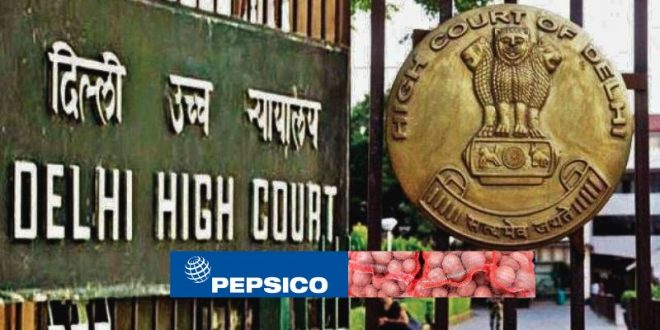#Agriculture #IntellectualProperty #PatentRights #DelhiHighCourt #FarmerRights #CropVarieties #PepsiCo #Lay’sChips #LegalDisputes
In a recent development, the Delhi High Court handed down a decision affirming PepsiCo’s entitlement to a patent for a unique potato variety crucial for its renowned Lay’s potato chips. This ruling comes after the Protection of Plant Varieties and Farmers’ Rights (PPVFR) Authority’s revocation of the patent in 2021, a decision overturned by the High Court, dismissing the objections raised by farmers’ rights activist Kavitha Kuruganti.
According to a report by Money Control, the court not only allowed PepsiCo’s appeal but also set aside the Authority’s previous order, restoring PepsiCo’s renewal application for further legal proceedings. The court rejected Kuruganti’s argument that PepsiCo’s legal actions against farmers were against the public interest, stating that there was insufficient evidence to prove the lawsuits were vexatious or part of predatory tactics.
PepsiCo, having established its first plant in India in 1989 for potato chip production, has been providing a specific potato seed variety to a group of farmers. These farmers, in turn, exclusively sell their produce to the company at predetermined prices.
The controversy began in 2019 when PepsiCo filed a lawsuit against Indian farmers for cultivating the FC5 potato cultivar, alleging patent infringement. The company sought over USD 121,050 from each farmer for purported patent violations. Despite initially pursuing legal action, PepsiCo eventually dropped the lawsuit several months later.
In response to the Protection of Plant Varieties and Farmers’ Rights Act of 2001, the PPV&FR had canceled the varietal registration certificate granted to PepsiCo in December 2021. PepsiCo, in its statement, expressed its commitment to examining the directive issued by the PPV&FR.
The Delhi High Court’s decision to uphold PepsiCo’s patent has sparked debate and raised questions about the balance between corporate interests and farmers’ rights. This landmark ruling sets a precedent for future legal battles concerning plant varieties and emphasizes the need for a nuanced approach to intellectual property in agriculture.







